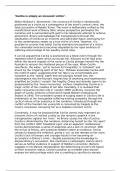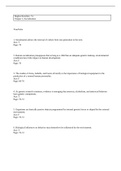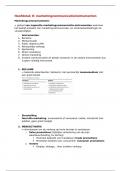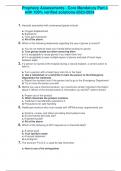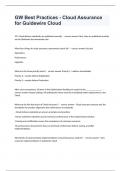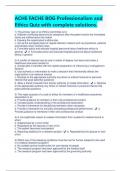Exam (elaborations)
‘Cecilia is simply an innocent victim’. To what extent do you agree with this view?
- Module
- Elements of Crime Writing
- Institution
- AQA
This is the question from the 2023 Elements of Crime paper section B. I obtained an A* for this particular essay.
[Show more]
